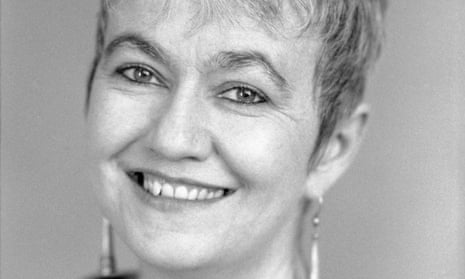Sarah Maguire, who has died aged 60 from breast cancer, was for 25 years a vital presence in British poetry as a poet and translator. Her three collections of poetry, Spilt Milk (1991), The Invisible Mender (1997) and The Pomegranates of Kandahar (2007), laid out new poetic ground in their concerns with nature, growth and the body. In 2004 Sarah founded the Poetry Translation Centre at London University, which aims to introduce new audiences to leading poets from around the world.
The PTC emerged from workshops she inaugurated during a Royal Literary Fund residency at Soas between 2001 and 2003. The centre extended Sarah’s personal practice of pairing a poet and linguist and bringing a poem into satisfying English, to many others: the PTC has now translated poets from South Korea to Somaliland, with the involvement of hundreds of writers. As a result, the PTC is a thriving, independent organisation that is a fitting legacy to this vital, capable, remarkable woman.
Sarah was born in west London to an Irish mother, and was adopted by Edith and Eugene Maguire, both schoolteachers, from an orphanage because, according to family legend, she was the baby who smiled at her father. She grew up in west London, bright, sensitive and rebellious. A scholarship girl, she left Notting Hill and Ealing high school to become Ealing council’s first female gardener; working her way through a demanding apprenticeship that included long lists of Latin nomenclature as well as hours spent raking leaves in the cold.
Sarah retained an interest in gardening throughout her life – she later edited an anthology, Flora Poetica (2003), of horticultural poems– but by the late 1970s her other interests, in radical politics, feminism, mental health and poetry, led her to involvement with the drugs charity Release. Sarah became the mental health worker there and met kindred spirits such as the poet Ian Duhig.
This work in turn led her to undertake a degree in English at the University of East Anglia, where she gained a distinguished first and many friends. She began a D Phil at Cambridge in the construction of femininity in the 18th-century novel, but decided to concentrate instead on her burgeoning poetic career. Through the 1990s Sarah’s bright attention and taut, fearless opinions made her a vivid presence at parties and a regular and popular reviewer on BBC Radio 4’s Kaleidoscope.
In 1996, she was the first writer to be sent by the British Council to Palestine. In the Middle East Sarah saw a poetry, and met poets, at the centre of politics and cultural life, and returned with a commitment to bring that centrality to the UK. She began translating contemporary Arabic poetry, working with the poet and literal translation to create a poem which, as she simply put it, “worked”: which retained its original meaning but gained an authentic character in English. Whatever her trials – and she was haunted by depression - Sarah never doubted the meaning of life: it was for helping other people. Over the next 20 years much of this help went into her translation project.
In a lecture at the Stanza poetry festival in 2008, Sarah described translation as “the opposite of war”, developing by its very nature the skills of negotiation. For her it was also a process of adoption: enabling relationships between linguists and poets, and bringing foreign poets as well as poems into her creative family. Sarah translated and made versions of the Palestinian poet Mahmoud Darwish, the Sudanese poet Al-Saddiq Al-Raddi and the Afghan poet Naderi Partaw, among others, and her own work was translated into Arabic and Malayalam. Of the many relationships Sarah forged with poets though translation, the closest was with the Afghan poet, engineer and government minister, Yama Yari, whom she met in 2003 and with whom she translated an Afghan novel as well as much poetry.
Establishing the PTC took tenacity, vision and great generosity of time. Sarah proved herself equally generous, as she coped with characteristic frankness with her final illness, in letting go. She was never easy, but always truthful, witty, kind and deeply engaged with others. Sarah is mourned by many friends, and by poets all round the world whose voices she helped to be heard.

Comments (…)
Sign in or create your Guardian account to join the discussion